I’ve been an ardent Google fan since the day I started using the internet. In fact, I was convinced that there was no better search engine. When I worked at Microsoft, guilty, I’d sneak in a few Google searches instead of using Bing.
Bing was okay for the most part, but I disliked it for one big reason
Bing does not always get you where you want to go, though. In fact, it keeps you locked into Bing in strange and frustrating ways. - Wired.
Google would either give me an answer, or send me somewhere else. It didn’t make me think a lot. It didn’t make me feel trapped in a plethora of suggestions.
But this a story from 6 years ago. Since then, Google either forgot what made it so great or it’s stuck trying to drive more engagement. I don’t care which, but it’s hurting my head.
Decisions, Decisions
Search has a thinking aspect to it. Of the 1000s of results, we need to find the one that gives us the answer we’re looking for. In modern dating, they call this the chase. There’s a rush of excitement and a good feeling when you find the right answer.
Take a look at 2015 Google:
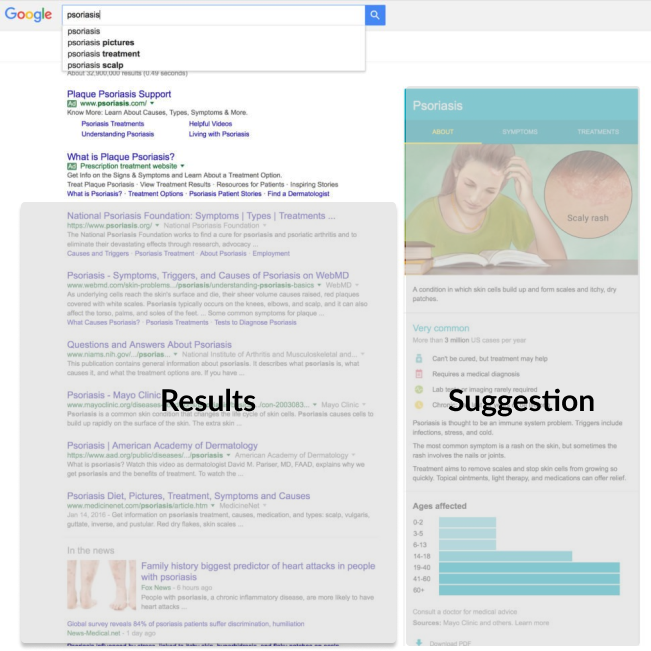
Google page structure in 2015
There were two areas to find answers:
Results: Of the 20 search results, find the one that best answers your question. None of them are ads.
Suggestion: Despite our search results, we actually think this might be more helpful.
In Modern Google, good luck. It’s so messy - you’re looking for an answer all over the page.
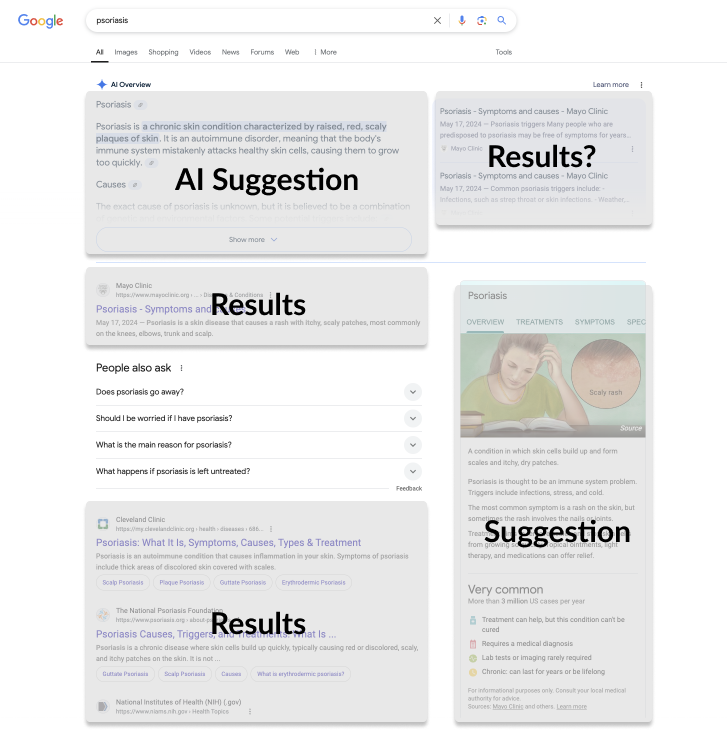
2025 Google page structure
-
AI Suggestions: Auto-generated based on your search, and there’s a chance the answer is made up. So you have to think if this is accurate or not.
-
Results: Out of the 5 results, none of which are next to each other - pick the best one.
-
Suggestion: Another answer summary box? Now with even more information.
On some searches, you may get one more nifty feature:
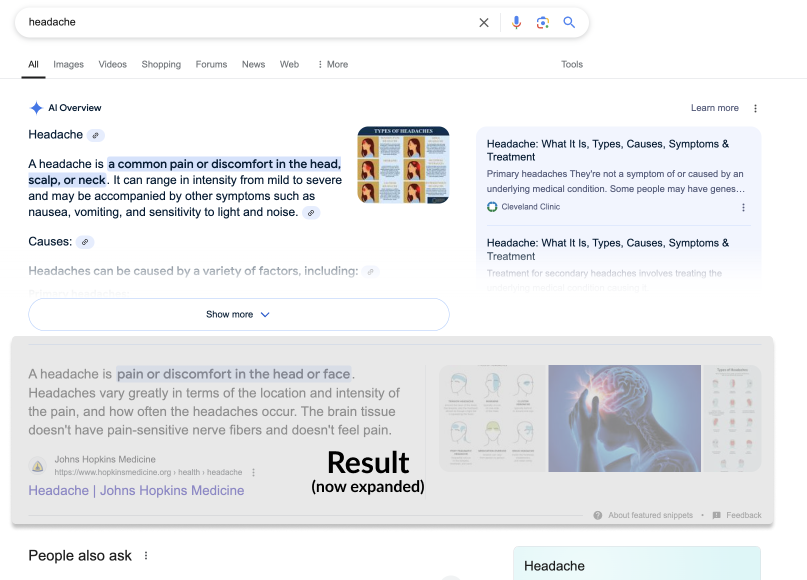
Expanded first link result
- Result (Expanded): The answer you’re looking for is actually on this other website, so we expanded it
Overwhelmed by the answer to pick? Me too. And it’s not an easy decision. There’s a lot of subtle calculations you have to do to filter the noise, the lies and the results from each other.
Exploiting Curiosity
One day a large bug flew into our house. I was able to track down that it was a black witch moth. If you’ve never seen one before, they’re kind of big and a little scary.

Black Witch Moth
Naturally, I turned to Google to learn about this moth. Of all the search results one popped out to me the most.
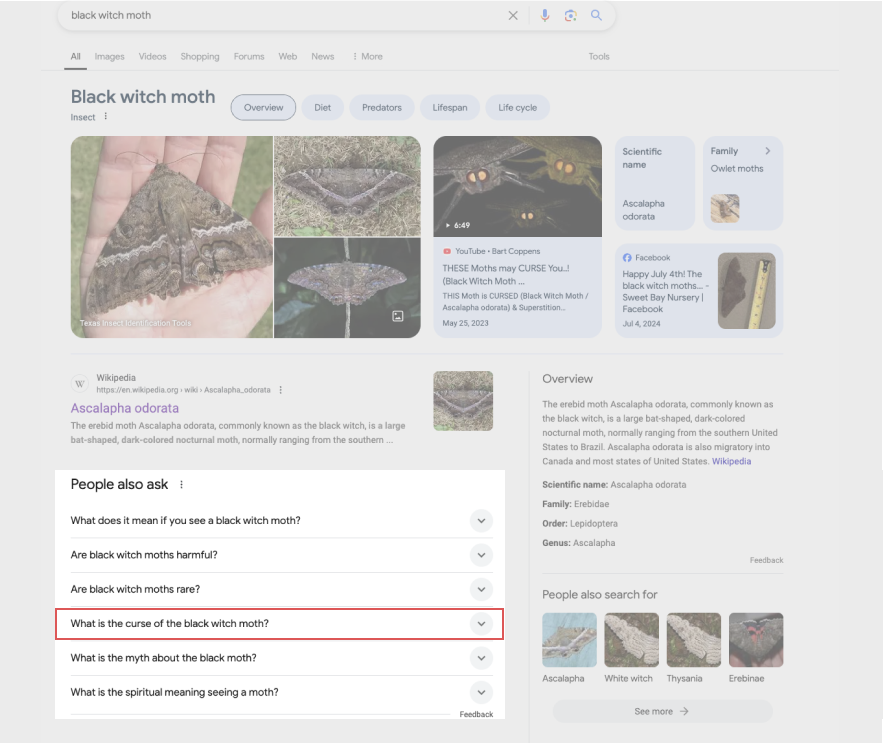
What is the curse of the black witch moth?
So of course, I want to know what the curse of the Black Witch Moth is. Now mind you, that question never crossed my mind, but Google was telling me that there’s a curse I didn’t know about.
A legend says that if someone is visited by a black witch, he or she will soon die.
Shoot.
A few people in our extended family had passed away a few weeks prior. Meanwhile, this moth was dancing in the middle of our house. Does this mean… ?
In a not so teeny way, Google raised my stress. Here was one extra thing to think about. One thing I wasn’t even looking for.
The People also ask section exploits your desire to know. The more you seek, the more questions it loads. It gives questions you never asked, and answers you didn’t need. What’s the harm in that?
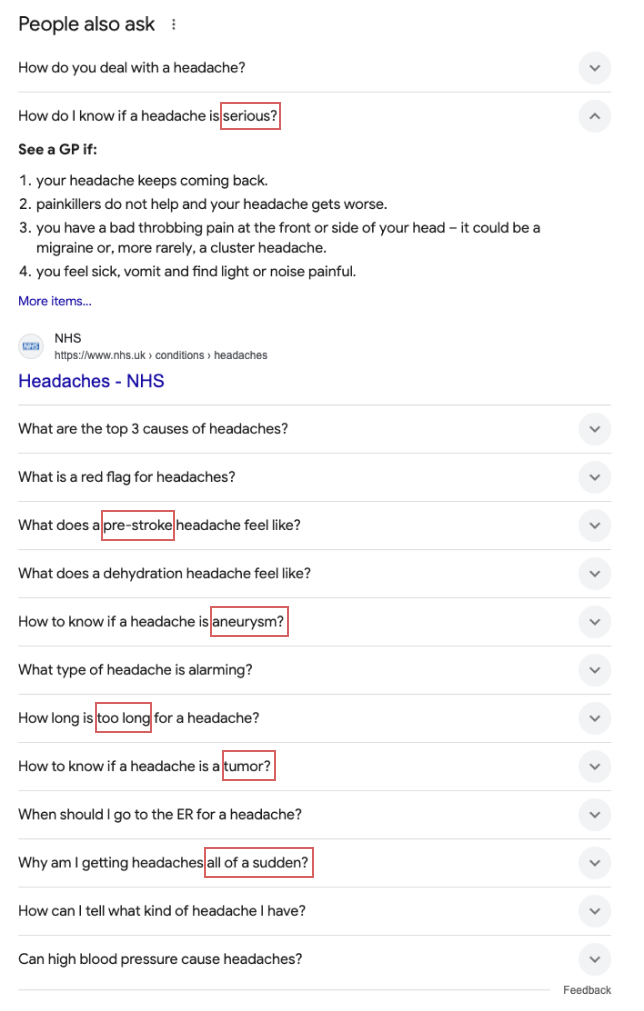
People ask for these when learning about a headache
The problem is we’re thinking of too many dimensions all at once. Your simple headache is now up against a tumor, an aneurysm and a pre-stroke condition. You’re asking yourself, how long has it been? Is that too long? I don’t know what an aneurysm is, but I should read about it just in case.
Because this section is all directed questions, you never get all of the possible causes.
For example, a Black Witch moth could symbolize death, or it means you’ll win the lottery. You’ll never hear the good side because the question only asked about the curse.
Google has created a loop of showing things you never asked for. It answers your question with… more questions?
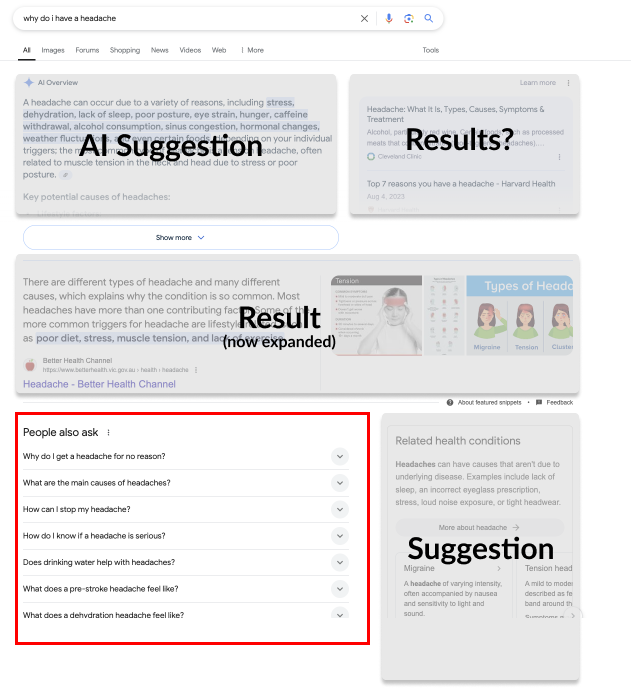
Where are my search results?
And if that’s at the top of the page - does it mean I’m asking the wrong questions?
A Better Google?
I never complained because Google was good. It was really good. But Google makes me think too much now. Is it a search engine, a Q&A box, an AI chat bot?
I don’t know the right answer, and it seems Google doesn’t either. So it gives me everything. I’m looking for alternatives - things that will save me mental capacity.
Here are a couple of new tools and techniques I’ve been using to decrease my Google needs.
-
Stop Searching: A few years ago, if you said the Eiffel tower was 984ft, I would’ve fact checked you in a second. No, it’s 1024 feet. But I’ve learned to stop. It’s not that important. Every search and answer has a cost. It takes subtle space in my head, so I have to stop and ask if I really care.
-
Direct Answers: ChatGPT and Perplexity give the most direct answers to my questions. You don’t get the reward of tracking down the right answer, but you get an answer. The answer could be wrong, or false - but it’s to the point, and it’ll rarely send you elsewhere.
-
Opinionated Search: Sometimes I want to build my own answer, and I need to hear more perspectives. Marginalia is a search engine that surfaces more obscure links.
Google vs Marginalia Results
A sample breakdown of the answers to the query “Fall of the Roman Empire”
| Marginalia | |
|---|---|
| Fall of the Western Roman Empire Wikipedia | History of the Decline and Fall of the Roman Empire Wikipedia |
| 8 Reasons why Rome Fell History.com |
The Fall of the Roman Empire - Book Review Ancient Roman Empire Forum |
| Roman Empire - Expansion, Decline Brittanica |
Decline and Fall of the Roman Empire NovaRoma |
| Fall of the Roman Empire Study.com | Heather — The Fall of the Roman Empire ChicagoBoyz (2006 review) |
Marginalia results are a lot more diverse. They may not answer my question fully, but I go to cooler places on the web. For example, I learned Nova Roma, an organization, was restoring classical Roman culture.
Locked In
Google Search is the largest player out there. But even if someone made a better search engine, you may not be able to use it everyday. Neither iPhone nor Chrome will let you pick a custom search engine.
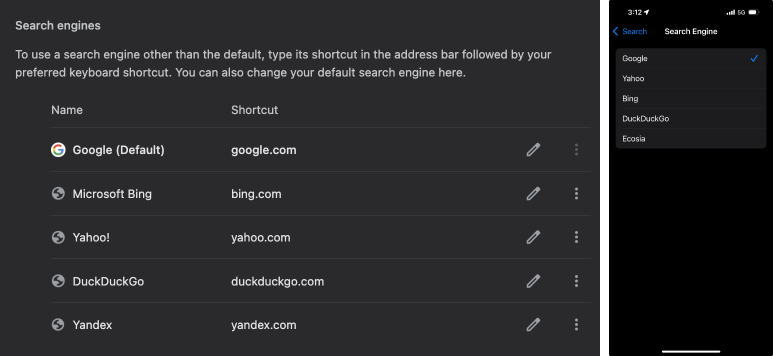
Search engine settings in Chrome 133 and iOS 18.3
I hope Google Search gets better. But right now it’s a little too much and all at the same time. Before the Black Witch moth gets you, understand that Google results aren’t telling you the whole story.
